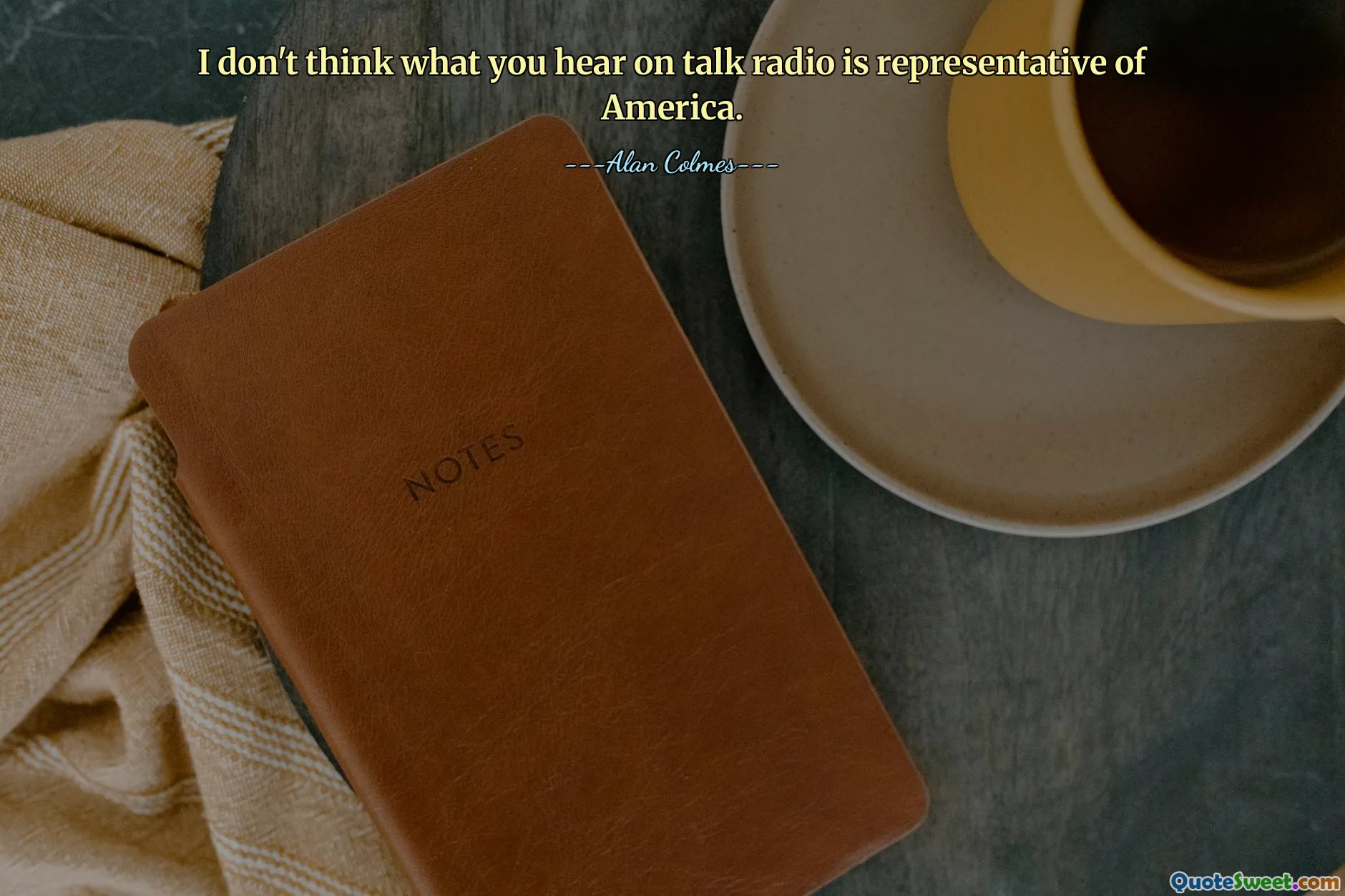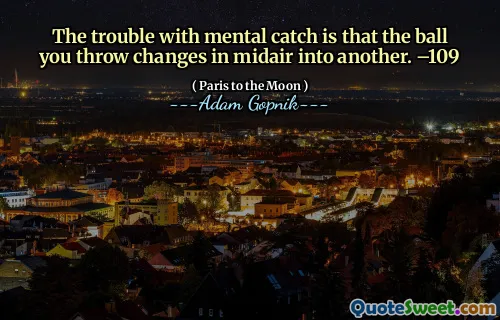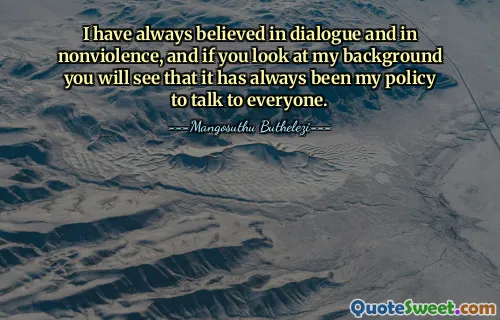
I don't think what you hear on talk radio is representative of America.
This quote highlights an important insight into the contrast between media portrayals and reality. Talk radio, especially in the United States, tends to focus on sensationalism, controversy, and often polarized viewpoints. Such platforms can create a skewed perception of the broader population's opinions, beliefs, and values. Many Americans consume talk radio as a significant source of news and commentary, but this niche represents a specific demographic with particular ideological leanings. Consequently, the sentiments expressed on these shows can be far from the diverse realities of everyday Americans. This disconnect can lead to misunderstandings and reinforce stereotypes or misconceptions. It's vital for media consumers to recognize that the voices amplified on talk radio do not necessarily reflect the entire spectrum of public opinion or the general American experience. Broader surveys, community interactions, and balanced journalism are necessary to gain an accurate understanding of the nation's collective identity. It serves as a reminder that media consumption requires critical thinking and a mindful approach—clarifying that the loud, often divisive viewpoints of talk radio are just one part of the larger social fabric. By understanding this distinction, individuals can better appreciate the diversity within America, avoid polarizations, and engage with a more authentic picture of the nation. Ultimately, this insight encourages us to seek out multiple sources of information, fostering a more comprehensive and truthful perception of society at large.










